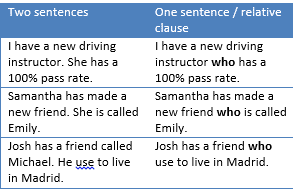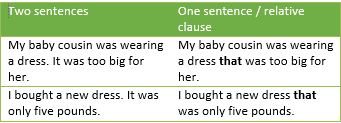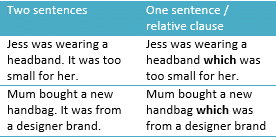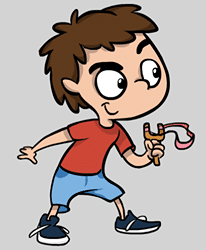Table of Contents
Week 1 | English Grammar
Day 4 |I am doing (present continuous)
Day 5 |Are you doing? (present continuous questions)
Day 6 |I do/work/like (present simple)(present continuous questions)
Week 2 | English Grammar
Day 1 |I don't... (present simple negative)
Day 2 |Do you...? (present simple questions)
Day 3 |I am doing (present continuous) I do (present simple)
Day 4 |I have... and I've got...
Day 6 |Worked/got/went etc (past simple)
Week 3 | English Grammar
Day 1 |I didn't... did you...? (past simple negative and questions)
Day 2 |I was doing (past continuous)
Day 3 |I was doing (past continuous) and I did (past simple)
Day 4 |I have done (present perfect 1)
Day 5 |I've just... I've already... I haven't...yet (present perfect 2)
Day 6 |Have you ever...? (present perfect 3)
Week 4| English Grammar
Day 1 |How long have you...? (present perfect 4)
Day 3 |I have done (present perfect) and I did (past)
Day 4 |Is done, was done (passive 1)
Day 5 |Is being done, has been done (passive 2)
Day 6 |Be/have/do in present and past tenses
Week 5| English Grammar
Day 1 |Regular and irregular verbs
Day 2 |What are you doing tomorrow?
Week 6| English Grammar
Day 2 |Must, mustn't, don't, need to
Day 6 |Do this! Don't do that! Let's do that
Week 7| English Grammar
Day 2 |There is... There are...
Day 3 |There was/were... There has/have been... There will be...
Day 6 |Have you? Are you? Don't you? etc
Week 8| English Grammar
Day 1 |Too/either/so am I/neither do I etc
Day 2 |Isn't/haven't/don't etc (negatives)
Day 3 |Do they? Is it? Have you?
Day 4 |Forming questions (who/what/why/where/when/which)
Day 5 |What...? Which...? How...?
Day 6 |How long does it take...?
Week 9| English Grammar
Day 1 |Do you know where...? I don't know what... etc
Day 2 |He/she said that... He/she told me that...
Day 3 |Work/working Go/going Do/doing
Day 4 |I want you to... I told you to...
Day 5 |I went to the shop to...
Day 6 |Go to... Go on... Go for... Go -ing... Get…
Week 10| English Grammar
Day 4 |I/me He/him They/them etc
Day 6 |Whose is this? It's mine/yours/hers etc
Week 11| English Grammar
Day 1 |Myself/yourself/themselves etc
Week 12| English Grammar
Day 2 |All/most/some/any/no/none etc
Week 13| English Grammar
Day 2 |If we go... if you see... etc
Day 3 |If I had... If we went... etc
Day 4 |A person who... A thing that/which (relative clauses 1)
A person who… a thing that/which… (relative clauses 1)
A relative clause is sentence that has who, that, which and whom.
We are going to look at who, that and which.
Who
(we use who for people, not things)
We have a new Maths teacher. She can speak French.
The two sentences become one with ‘who‘
She is replaced with -> who
We have a new Maths teacher who can speak French.
More relative clauses with ‘who‘ :
- A burglar is someone who undergoes a robbery.
- A snake is a reptile who is from the animal kingdom.
- Does anybody have a friend who is called Lauren?
- Do you know someone who can swim in the swimming gala?
- The person who just rang me is my best friend.
- The groom is the man who is marrying the bride.
- The woman who is always walking up and down our street is my neighbour.
That
(we use that for things or people)
Thomas served us chicken. It was overcooked.
The two sentences become one with ‘that‘
It is replaced with -> that
Thomas served us chicken that was overcooked.
More relative clauses with ‘that‘ :
- I woke up early so that I could have enough time to eat breakfast.
- Louisa was wearing sunglasses that were too big for her face.
- A washing machine is an appliance that washes clothes.
- Emma has her own personal chauffer that drives her everywhere she wants to go.
- Jamie wants to go somewhere that is exotic.
- I live in a house that is 300 years old.
- I want to somewhere that has a lot of sun.
- The bus driver that takes me to school is very rude.
- I tried on the hat that I saw yesterday.
Which
(we use which for things, not people)
I found a good deal for a weekend getaway to the spa. It was for £150.
The two sentences become one with ‘which‘
It is replaced with -> which
I found a good deal for a weekend getaway to the spa which was for £150
More relative clauses with ‘which‘ :
- I need to buy a new bag which my files can fit into.
- Spencer has a dog which is cuddly and fluffy.
- My uncle owns a restaurant which is in town.
- Alex has a job which pays minimum wage.
- A dishwasher is a machine which washes the dishes for you.
- I need a gold pair of shoes which will go with my outfit.
- My brother wants a car which is a manual.
- My cousin has a maths tutor which comes to the house.
Sometimes we can use who or that for the same sentence because who and that are both used for people.
- The people who I work with are really nice.
- The people that I work with are really nice.
Sometimes we can use that or which for the same sentence because that and which are both used for things.
- Stephanie lives in house that is 350 years old.
- Stephanie lives in a house which is 350 years old.
A person who… a thing that/which (relative clauses 1) Exercises

•is for things or people.
• is for things, not people.
• is for people, not things.
[bg_collapse view=”link” color=”#fafafa” expand_text=”Reveal Answer” collapse_text=”Hide Answer” inline_css=”background: #2ea3f2; padding: 9px; font-size: 14px; font-weight: 600;” ][/bg_collapse]

• I met a man. He works at the local newsagents
• Emma bought a new dress. It was gold and sparkly.
• Mum baked a cake. It tasted so yummy.
• Louisa was wearing heels. They were too big for her.
• I made a new friend at school. She is from America.
• My sister ordered Chinese food. It was nasty and undercooked

1.
2.
3.
4.
5.
6.
7.
8.
Challenge:
Write down sentences where you can use either who/that for the same sentence.
Write down sentences where you can use either that/which for the same sentence.
1.





